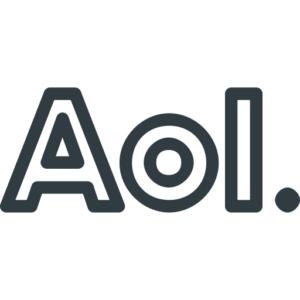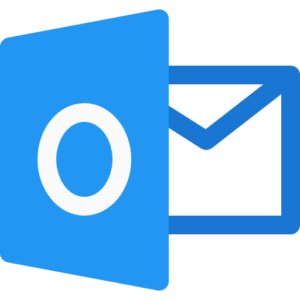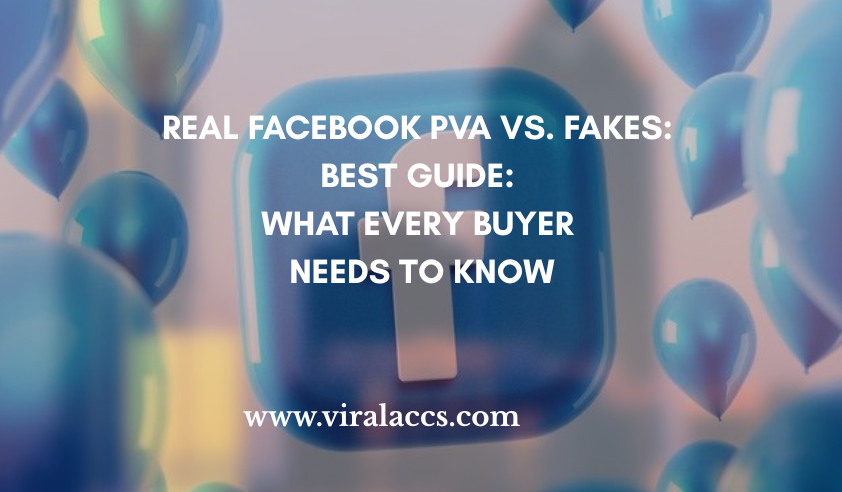Learn how to identify a real Facebook PVA and avoid fake Facebook sellers. Protect your marketing efforts with verified, high-quality accounts that deliver reliable results.
Introduction
In today’s digital marketing landscape, a strong presence on social media platforms like Facebook is crucial for businesses and marketers. One tool that has gained popularity among digital marketers, advertisers, and social media managers is the real Facebook PVA, or Phone Verified Account. These accounts are verified using a unique phone number, making them appear more trustworthy and legitimate in the eyes of Facebook’s algorithm.
A real Facebook PVA is not just any account it’s an account that has undergone phone verification, is often aged, and is created using distinct IP addresses and unique user details. These factors help reduce the chances of being flagged, restricted, or banned by Facebook, which is especially important for those running ad campaigns or managing multiple accounts for client work.
However, with the growing demand for high-quality PVAs, a new problem has emerged: fake Facebook sellers flooding the market with low-quality, non-verified, or bot-generated accounts. These fake accounts often lack proper verification, use recycled or mismatched information, and are created in bulk using automation tools. Falling for these shady sellers can lead to wasted money, account bans, and disrupted marketing campaigns.
If you’re planning to buy Facebook PVAs for your business or agency, it’s critical to understand the difference between genuine and fake accounts. This guide will help you identify a real Facebook PVA, explain why they’re important, and show you how to avoid fake Facebook sellers that could put your marketing efforts at risk.
What Is a Real Facebook PVA?
As the demand for reliable Facebook accounts grows among digital marketers, advertisers, and automation users, the term real Facebook PVA has become increasingly important. But what exactly does it mean, and why should you care?
Definition and Purpose of Real Facebook PVAs
A real Facebook PVA stands for a Phone Verified Account that has been created using a unique phone number during the registration or verification process. This phone verification adds a layer of legitimacy to the account in Facebook’s eyes, making it less likely to be flagged or restricted when used for business or promotional activities.
These accounts are commonly used by marketers and agencies who need to:
- Manage multiple business pages
- Run Facebook ads
- Join niche groups
- Engage in outreach or lead generation
- Avoid account limitations tied to personal profiles
Unlike random, mass-created accounts, real Facebook PVAs are built to be stable, durable, and functional in a business environment.
Key Features of Authentic PVAs
When shopping for Facebook PVAs, it’s critical to understand the features that set a real account apart from a fake one. Here are the hallmarks of a genuine, high-quality PVA:
- Phone-Verified: Each account has been confirmed using a unique, working mobile number. This step is essential to pass Facebook’s initial trust checks.
- Unique IP Address Used at Creation: Accounts created from unique IP addresses appear more natural and reduce the risk of being flagged as spam.
- Aged or Warmed-Up: Many real Facebook PVAs are aged, meaning they were created months or years ago, or have been gradually used to mimic natural human behaviour.
- Consistent Profile Activity: These accounts usually have complete profile information, a few friends, occasional posts, and interactions that simulate real user behaviour.
- Email Verified: In addition to phone verification, most real PVAs are linked to verified email addresses, enhancing their credibility.
These features ensure that the account doesn’t look suspicious to Facebook’s automated security systems.
Benefits of Using Real Accounts for Marketing and Ad Campaigns
Using a real Facebook PVA can significantly boost your chances of success in digital marketing. Here’s why:
- Lower Risk of Account Suspension: Real PVAs are much less likely to be flagged, disabled, or banned, which is critical if you’re running paid ad campaigns.
- Higher Trust Score: Verified and aged accounts typically have a higher internal trust rating, meaning your ads and posts are more likely to be approved and shown.
- Greater Campaign Stability: Real accounts won’t suddenly disappear or get locked out due to suspicious activity, unlike fake or bot-generated ones.
- Improved Engagement: Authentic-looking accounts can engage more naturally in groups, comments, and outreach, making your marketing efforts more effective.
In short, a real Facebook PVA is not just a Facebook account it’s a marketing asset. By understanding what makes these accounts valuable and how they differ from low-quality alternatives, you’ll be better equipped to avoid fake Facebook sellers and invest in tools that actually drive results.

How Fake Facebook PVAs Can Harm You
While the idea of buying Facebook PVAs at low prices might sound appealing, using fake or poorly generated accounts can do far more harm than good. These accounts are often created in bulk using automation tools, recycled phone numbers, and fake identities. If you’re not careful, relying on such accounts can jeopardize your entire marketing strategy.
Knowing how to avoid fake Facebook sellers is just as important as understanding what a real Facebook PVA is. Let’s break down the risks, red flags, and consequences of using fake Facebook accounts.
Risks of Using Fake or Bot-Generated Facebook Accounts
Fake PVAs those that aren’t properly verified or are generated by bots pose a number of serious risks:
- Instant Account Bans: Facebook’s security systems are highly sensitive to suspicious activity. Fake PVAs often trigger red flags immediately, leading to instant bans or login challenges.
- Wasted Ad Spend: Running ads from a low-quality or flagged account often results in rejected campaigns or restricted ad access. This wastes both time and money.
- Security Concerns: Many fake sellers reuse login credentials or use compromised email addresses and phone numbers, making these accounts vulnerable to hacking or third-party access.
- Zero Support: When your fake account gets banned or locked, the seller is often unresponsive, offering no refunds or replacements. Meanwhile, your campaign stalls.
- Brand Damage: If you’re using fake accounts to represent a business or client, it can damage credibility and trust with your target audience.
The short-term savings from buying low-cost, fake PVAs simply aren’t worth the long-term consequences.
Common Red Flags in Low-Quality Accounts
Spotting a fake account before you buy is key. Here are some common warning signs that can help you avoid fake Facebook sellers:
- Too-Good-To-Be-True Pricing: If the price is far below market rate, there’s usually a reason. Quality real Facebook PVAs require time and resources to create.
- No Phone or Email Verification: A legitimate PVA must be verified by both phone and email. If the seller can’t confirm this, walk away.
- Generic or Duplicate Profiles: Many fake PVAs have identical bios, no friends, and a lack of unique profile photos or content.
- No Usage History: Real accounts will have some login history, activity, or posts. Zero engagement is a red flag.
- Anonymous or Unreachable Sellers: If the seller avoids questions, has no reviews, or offers no support, it’s a sign of a scam.
Potential Consequences: Bans, Ad Rejections, and Loss of Credibility
The consequences of using fake Facebook PVAs are often immediate and costly:
- Permanent Bans: Fake accounts are easily detected and banned, especially if used to run ads, join groups, or manage business pages.
- Ad Account Suspension: Even one flagged PVA can get your entire ad account or Business Manager suspended.
- Shadow banning: In some cases, Facebook won’t ban the account but will suppress its reach, making your posts invisible.
- Loss of Trust and Credibility: If you’re using these accounts to engage with real users or represent a brand, it can seriously harm your professional image.
Cutting corners with fake accounts can destroy your marketing efforts. To ensure long-term success, always invest in a real Facebook PVA and make it a priority to avoid fake Facebook sellers who only offer false promises.
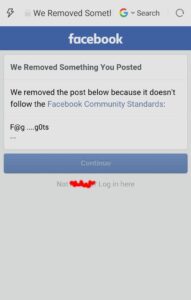
How to Spot a Fake Facebook PVA
As the demand for Facebook accounts continues to grow, so does the number of unreliable sellers offering low-quality or entirely fake PVAs. Knowing how to identify these fakes is essential if you want to protect your budget, campaigns, and business reputation. Whether you’re new to buying accounts or have been burned before, this guide will help you learn how to spot a fake Facebook PVA and avoid fake Facebook sellers before it’s too late.
Signs of Fake Facebook Sellers
Not all sellers are trustworthy. Many individuals or websites claim to offer real Facebook PVAs, but in reality, they sell mass-generated or recycled accounts. Watch for these signs when evaluating a seller:
- Lack of Transparency: If a seller refuses to explain their account creation process or won’t share samples, it’s a major red flag.
- Anonymous Profiles: Sellers operating under fake names, with no business identity, reviews, or social proof are often unreliable.
- No Guarantees or Support: Real sellers usually offer replacement policies, basic account documentation, or support. Scammers disappear once they’re paid.
- Poor Communication: A seller who dodges questions or gives vague responses is likely hiding something.
A genuine provider of real Facebook PVAs will be open, communicative, and willing to show proof of authenticity.
Checklist: How to Identify a Fake Facebook PVA
Use this quick checklist to evaluate whether the Facebook PVA you’re being offered is fake or low quality:
✅ Suspiciously Low Prices
If it’s drastically cheaper than the market average, the account is likely fake or automated.
✅ No Phone or Email Verification
A true real Facebook PVA will always be verified by a unique mobile number and linked to a working email address.
✅ Duplicate Profile Information
Many fake accounts have copy-pasted bios, common stock profile pictures, or repeated usernames clear signs of bulk creation.
✅ No Profile Activity or History
Look for signs of real usage, like posts, friends, groups, or interactions. A completely blank account is often a throwaway fake.
✅ Same IP Used Across Accounts
Accounts created using the same IP address are more likely to be flagged by Facebook. Real sellers use unique IPs for each account.
✅ Seller Can’t Answer Basic Questions
Ask about the age of the account, country of origin, phone verification status, and login history. A real seller will have answers.
Examples of Fake Account Behaviour or Setup
To better understand how fake Facebook PVAs behave, here are some common characteristics and behaviours that indicate an account is not genuine:
- 📛 Profile Photo is Missing or Generic: Fake accounts often have no photo, or use random stock images pulled from the internet.
- 🕵️ No Friend List or Fake Friends: The account may have zero friends, or a handful of fake-looking profiles as friends.
- 🗓️ Recently Created with No Activity: Accounts created days ago with no likes, posts, or group activity are likely to get flagged quickly.
- 🧾 Fake Name or Random Strings: Names like “John Xyz123” or inconsistent formatting are signs of automated creation.
- 🔐 Frequent Login Issues: If the account frequently triggers login verifications or gets locked when accessed from your IP, it may have been abused already.
By learning to identify these red flags early on, you’ll avoid wasting money on low-quality accounts and protect your marketing efforts. Your best defense is to work only with trusted sellers who offer real Facebook PVAs and stay far away from any offer that looks too good to be true. Always verify before you buy, and make it your mission to avoid fake Facebook sellers who could jeopardize your strategy.

Where to Find Real Facebook PVAs
Buying a real Facebook PVA is more than just clicking “Buy Now” on a random website. With the rise in demand, countless fake sellers are flooding the market with low-quality, non-verified, or bot-generated accounts. If you’re serious about using Facebook PVAs for your business or ad campaigns, you need to know where to find legitimate sources and how to verify authenticity before making a purchase.
Tips to Find Trusted PVA Sellers
Finding a trustworthy seller starts with doing a little homework. Here are practical tips to help you locate genuine providers of real Facebook PVAs:
- Look for Experience and Reputation: Sellers who have been in the market for a while and have positive feedback across platforms are usually more reliable.
- Check Niche Forums and Communities: Places like BlackHatWorld, Warrior Forum, or digital marketing Telegram groups often feature vetted sellers with reviews.
- Ask for Sample Accounts or Screenshots: A good seller won’t hesitate to show you a sample profile (with private details blurred) to prove authenticity.
- Avoid One-Time Deals or Anonymous Sellers: Stick with providers who are willing to offer ongoing support and are reachable through multiple channels.
What to Ask Before Buying
Before you place an order, here are key questions you should ask to ensure you’re getting a real Facebook PVA:
- Is the account phone-verified with a unique number?
- What country are the IP and phone number from?
- Is the account aged or newly created?
- Does the account come with profile activity (posts, friends, groups)?
- Will I get access to the email address used for verification?
- Is there a replacement policy if the account gets locked immediately?
If a seller can’t confidently answer these questions, consider it a red flag.
How to Verify the Authenticity of a PVA before Purchase
Even if a seller promises “real” PVAs, it’s up to you to double-check. Here’s how to verify authenticity:
- ✅ Login and Check Profile Details: Look for posts, friend lists, and completed bio information.
- ✅ Check Verification Status: Go to account settings and confirm the presence of a verified phone number and email.
- ✅ IP History: Ask the seller what type of IP address was used. Accounts created on unique residential IPs are more trusted.
- ✅ Test Activity: Join a group or post a comment from the account to see if it triggers any security alerts.
Taking these steps will save you from wasting money on worthless accounts and ensure your efforts are built on a stable foundation.
How to Avoid Fake Facebook Sellers
Avoiding scams in the PVA market is just as important as finding a good seller. Fake sellers are everywhere using deceptive tactics to lure in unsuspecting buyers and deliver low-grade or non-functional accounts. By understanding the red flags, you can protect your investment and reputation.
Warning Signs of Unreliable Sources
Fake sellers tend to follow similar patterns. Here are the most common signs that you’re dealing with a shady source:
- 🚩 No Website or Business Identity
- 🚩 Only Accepts Crypto with No Refund Policy
- 🚩 Pushes for Quick Sales Without Answering Questions
- 🚩 No Reviews or Fake Testimonials
- 🚩 No Contact After Payment
If you’re dealing with a seller who checks any of these boxes, stop the transaction immediately.
Scams and Tactics Used by Fake Sellers
Scammers are creative and often use these dirty tricks:
- Sending Non-Working Login Info: You pay, and the account either doesn’t work or asks for verification upon login.
- Recycled or Shared Accounts: The same PVA is sold to multiple people, causing login clashes and lockouts.
- Disappearing after Payment: No support, no refund, and no way to get your money back.
- Fake “Verified” Accounts: Some sellers use fake phone numbers or bypass methods that don’t hold up under Facebook’s system checks.
This is why it’s critical to avoid fake Facebook sellers and buy only from vetted, reputable sources.
Recommended Platforms or Communities for PVA Buyers
If you’re wondering where the pros go to buy real Facebook PVAs, here are some trusted options:
- ViralAccs – Search the Marketplace section for vetted PVA providers with real feedback.
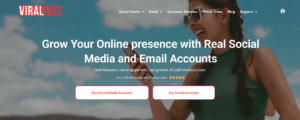
- AccountsCorner – Another solid place to find experienced sellers in the digital marketing space.
- AccsCart – Niche groups dedicated to lead gen, social media marketing, or affiliate marketing often have reliable contacts.
- BestPVAAccounts – Ask fellow marketers for referrals to proven sellers they’ve used and trust.
Final Tip: Always do a small test purchase before placing a bulk order. It’s the best way to evaluate account quality and seller reliability without taking on too much risk.
Conclusion
Using a real Facebook PVA is essential for anyone serious about Facebook marketing. These verified, high-quality accounts offer stability, reduce the risk of bans, and help your campaigns perform better. To protect your investment, always avoid fake Facebook sellers. Watch out for suspicious prices, no verification, and inactive profiles. Stick to trusted sources, ask the right questions, and test accounts before going all in.
In the end, quality always wins. Investing in real accounts means safer, more sustainable results for your business.




